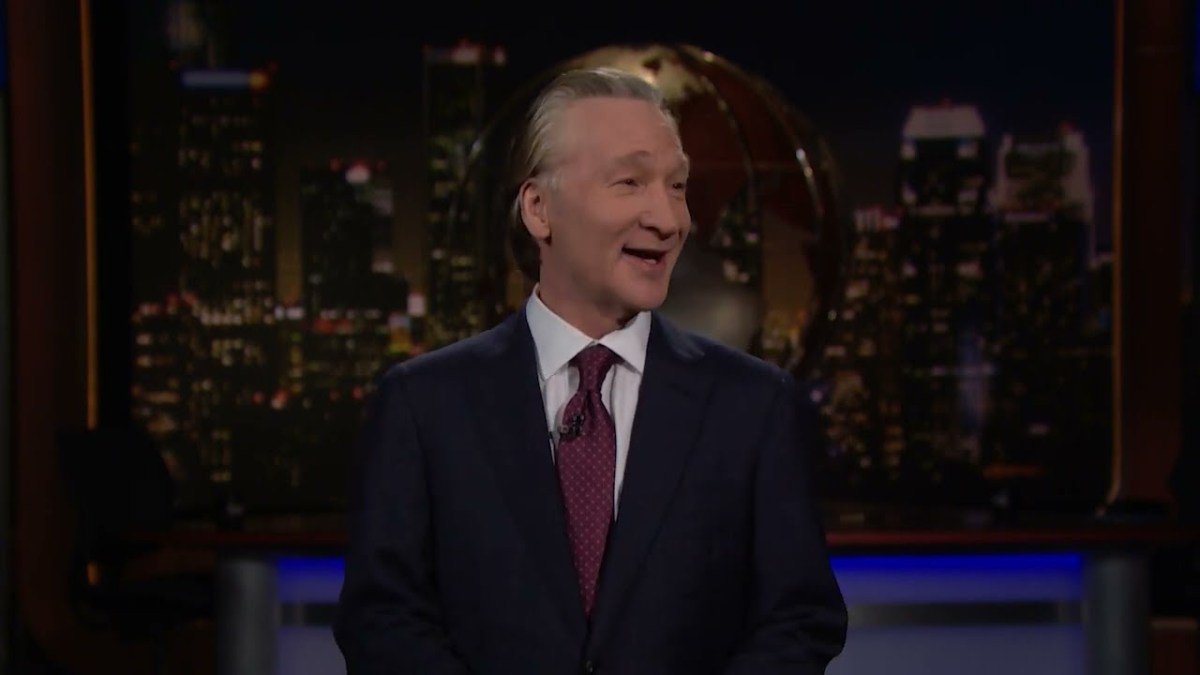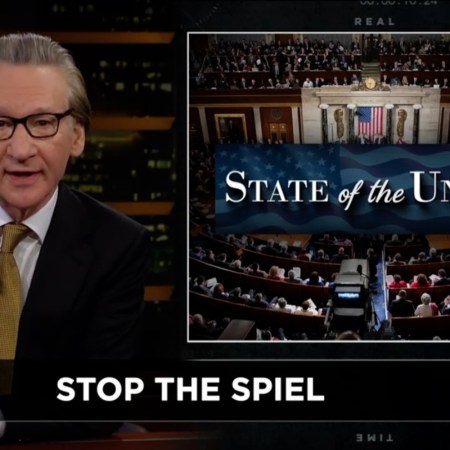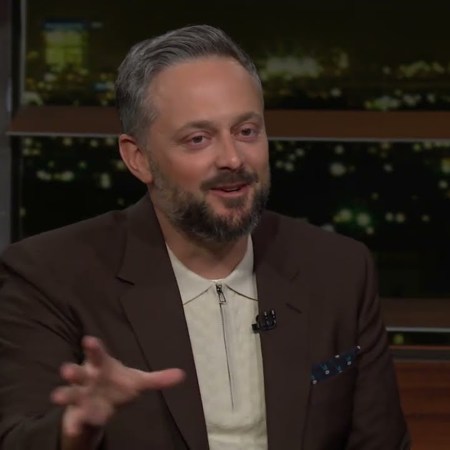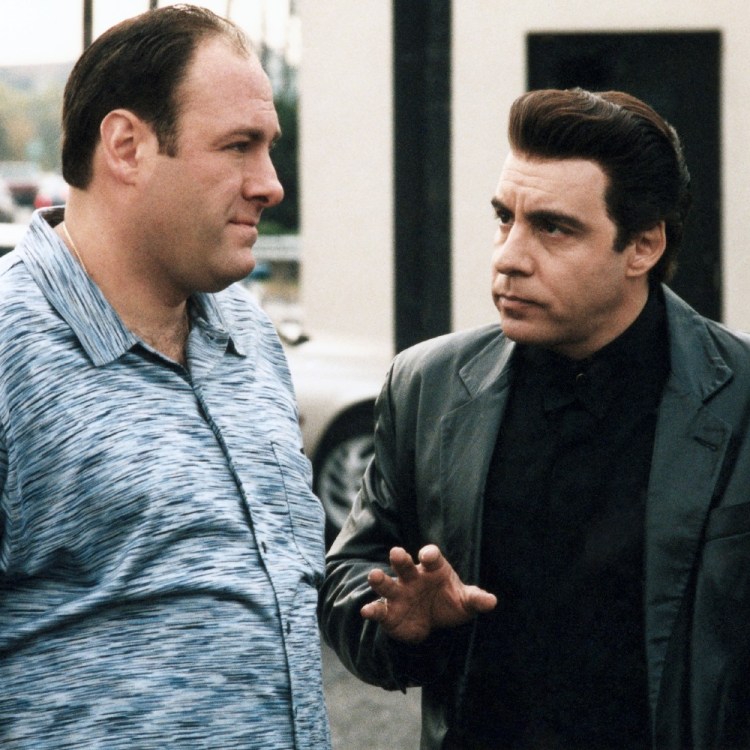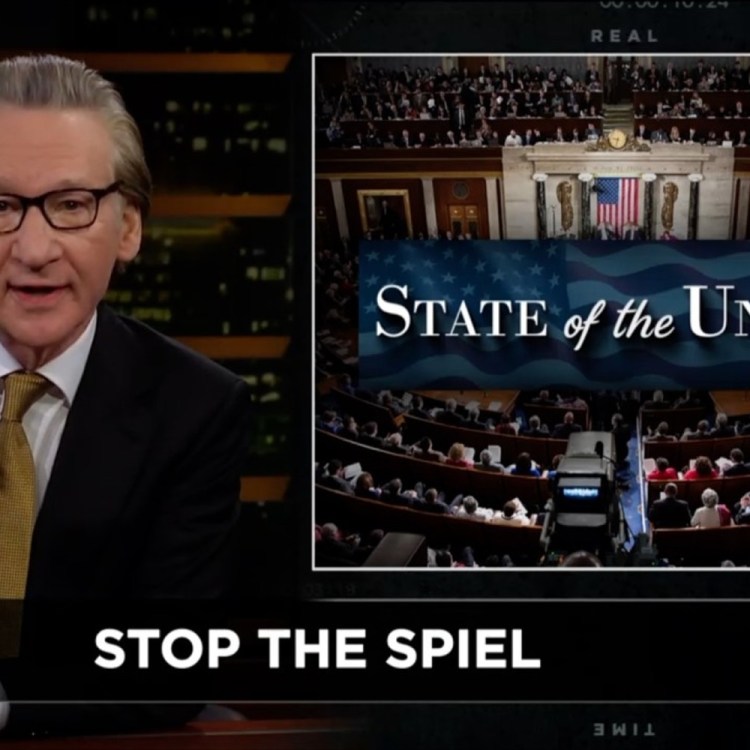Bill Maher opened the latest episode of Real Time With Bill Maher on an unexpected note: criticizing the policies that meant that his studio audience was still masked and distanced despite California being “reopened.” He described it as “the open mic at Cedars Sinai,” and expressed some hope that when the show returned after its July break, things would be more normal. It was a curious moment for someone who had tested positive for COVID-19 after being vaccinated, though it’s not that strange — there are plenty of people out there who happily got vaccinated but who are also eager to stop masking when given the all-clear.
Elsewhere in his opening monologue, Maher addressed the recent US/Russia summit, covered the heat wave enveloping parts of the country and circled back on his riff about this year’s Oscars being about largely depressing films. And if you spent the week wondering if Maher would address the Batman oral sex controversy — and yes, typing that phrase out makes it very clear how bizarre it is — you’ll be pleased (or horrified) to learn that he did.
Comedian and podcast host Nikki Glaser was this episode’s first guest. Maher spoke of wanting to have a comedian as his guest for this episode, as he himself is about to do his first standup gig in well over a year. “I’m nervous like I haven’t been since I was 23,” he said. Glaser mentioned that she had done a few masked and distanced shows in the last year. “I started to feel like the crowds that were coming out for those shows were anti-maskers, who aren’t really the people that enjoy me,” she told Maher.
From there, the conversation shifted to the ubiquitous debate over comedy and cancel culture. Was Glaser ever worried about getting “canceled,” Maher asked? She admitted that she had once been, but that spending 10 months living with her parents during the pandemic prompted a realization that that was probably what cancellation would look like. But she also added more nuance to her answer. “I’m accountable,” Glaser said. “I don’t mind apologizing.” And then things took a very surreal turn into whether or not Glaser could kill a shark with one punch.
Overall, though, the discussion took a few fascinating turns. Glaser defended the practice of personal apologies to a more skeptical Maher, and also got in a few digs at the growing number of comedians opting out of playing colleges.
Political strategist Paul Begala and The Argument host Jane Coaston comprised the evening’s panel. Maher’s first question addressed the Capitol breach and its aftermath, and on many Republicans’ shifting reactions to the incident. “The Republican Party exists as an oppositional force,” Coaston said.
Questions of policing comprised the next phase of the debate, with Maher pointing to Eric Adams’s frontrunner status in New York City’s mayoral election as one sign that voters are concerned about crime. Begala took aim at the “defund the police” movement, while Coaston opted for a nuanced approach, pointing out that many people are frustrated with what she described as simultaneous over-policing and under-policing. In Honolulu, Coaston pointed out, the homicide clearance rate is 25%.
A discussion of the political landscape in Texas took a slight detour into the controversy over some of the casting choices in the film adaptation of In the Heights. This, in turn, led to a debate over whether certain online controversies did or did not have an impact on policy.
“Sometimes when people are mad on the internet, you need to identify who is mad,” Coaston said. “Do they vote? Do they have power? Do they have the power to vote on things that could change these real, lived experiences of communities of color?” Maher pushed back against this somewhat, reiterating his frustration with the idea of apologizing that he’d raised earlier in the episode with Glaser.
For this episode’s New Rules, Maher returned to the drought in the western US. Or maybe that’s a bad choice of words: “You can’t call it a drought if it happens all the time,” Maher said. This led to him bringing up water restrictions in San Francisco, which Maher contrasted with the amount of California’s water that goes to agriculture, including almond farming. Especially almond farming, as it turns out, which requires significantly more water than, say, growing oranges or tomatoes. This isn’t a new argument, but given the effects of climate change on California, it’s also an increasingly more salient one.
By the end of the segment, Maher had arrived on an interesting point — that California, for all its regulations, still seemed to give massive corporations a number of breaks. “Where is the heavy hand of government when you need it?” Maher asked. And he pondered leaving California, making for a stark note to bring the segment to a close.
Thanks for reading InsideHook. Sign up for our daily newsletter and be in the know.
